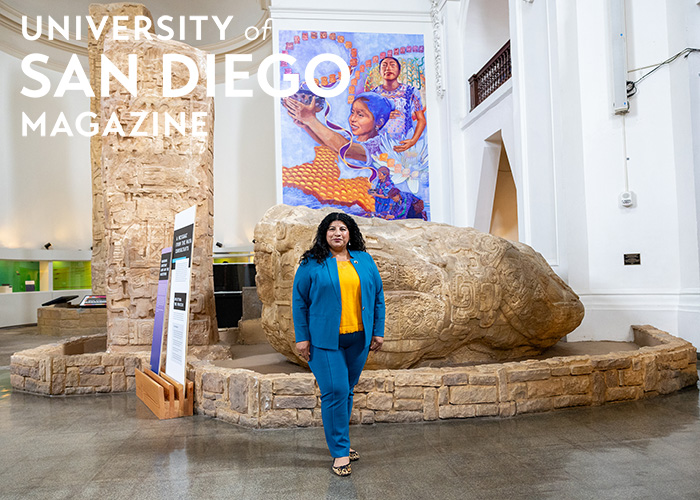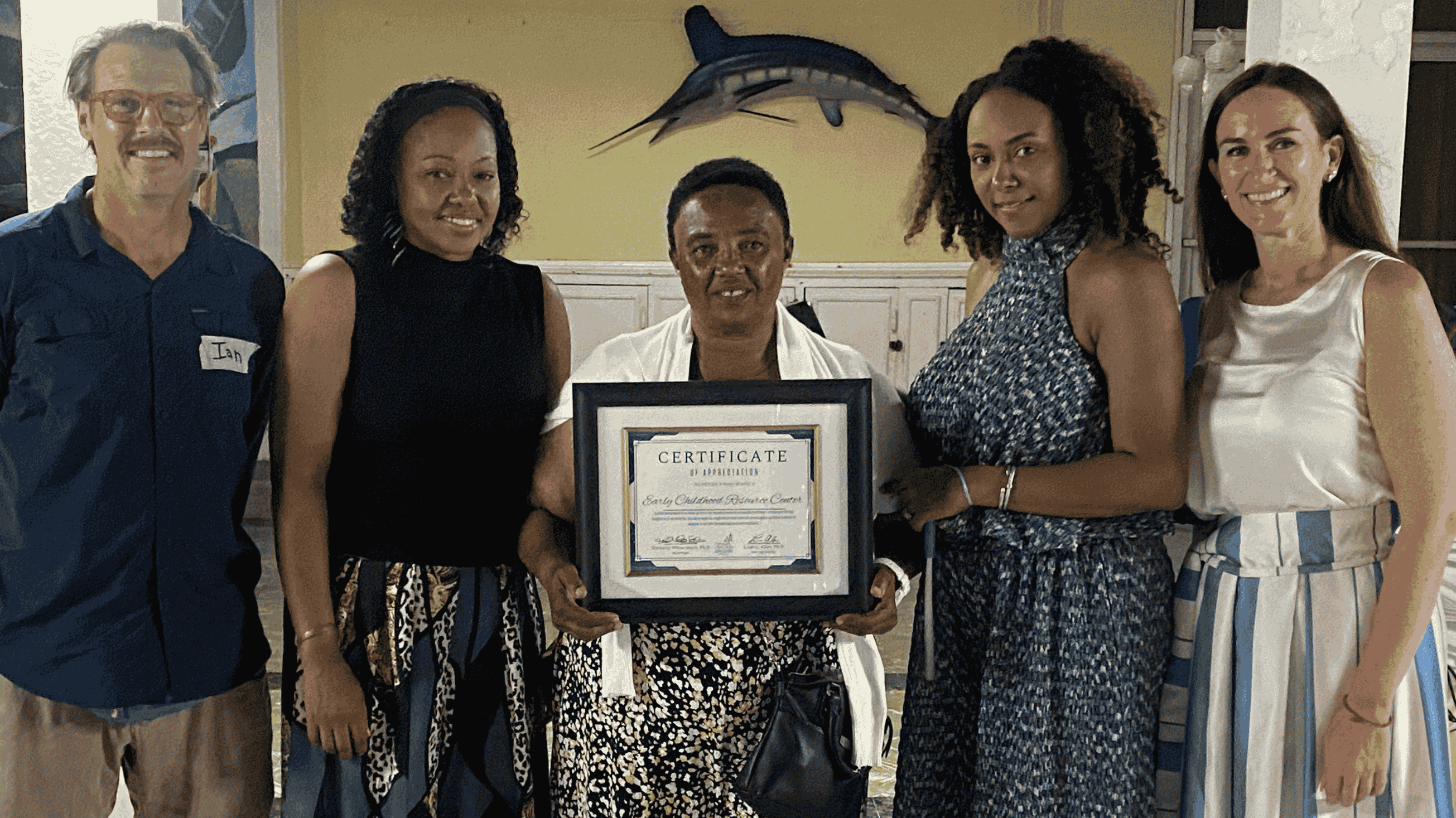USD Social Innovation Showcase (Week 1): Student Teams Increase Impact through Innovation
The Global Social Innovation Challenge (GSIC) is coming to campus in June. Each Monday, leading up to the first big step, the USD Social Innovation Showcase on Wednesday, April 25, we're introducing many of the Center for Peace and Commerce’s socially innovative teams who address challenges and ideate solutions for social change via the 17 United Nations Sustainable Development Goals. This week, we learn about six teams that are focused on Goal No 3: Good Health and Well-Being.
Team 1: Breathe Easy
Team Member: Blake Bierwith '18 (Undergraduate International Business).
Challenge: Prevention of Lung Disease in Rural Vietnam. In Vietnam, more than 50 million people are exposed to household air pollution every day. Due to traditional cooking methods, respiratory-related diseases have become the No. 1 cause of death in Vietnam.
Suggested Solution(s): Bierwith's plan is four-fold. Partner with local Vietnamese NGOs that have a strong understanding of the pain points people living in rural areas are facing and organize and sponsor villagers' attendance at a vocational program where they can learn to build stoves modeled by Chinese Improved Stores and understand the importance of HAP; The vocational program will have webinars with Vietnam NGOs to teach them to build the stoves; a bank there provides small scale loans for villagers to help them afford these stoves, thus creating a sense of ownership and higher rate of adoption; and rural villagers trained to make the stoves who can be employed as stove builders in a market of 50 million to help prevent thousands of deaths each year.
Team 2: Vehicle Amber Alert
Team Member: Alexandria Young ‘18 (Undergraduate Communication Studies).
Challenge: Young, a basketball student-athlete, wants to develop an improvement for the current Amber Alert system in place to provide the public a warning of a child abduction.
Suggested Solution: Her solution is to create a wireless technological device that works in conjunction with Amber Alerts. The device would be attached to the interior of vehicles and would project the same vital information across the rear window of vehicles. Currently, the Amber Alert is a “one and done” mode on getting its message out. Young’s solution would provide a more widespread and consistent alert for all citizens since it would be seen repeatedly on various cars and their rear windows.
Team 3: Generations
Team Members: Janaira Quigley '18 and Anna Kenneally '18 (both in Master of Science in Global Leadership).
Challenge: Two groups of people that experience a sense of social isolation are home-bound seniors and stay-at-home mothers. Seniors can find it challenging to contribute to society due to a lack of mobility and, as a result, suffer from social isolation. Stay-at-home moms face challenges due to child-care needs and are in need of a second income.
Suggested Solution: Quigley and Kenneally want to create a business that gives moms an income by assisting home-bound seniors. Generations is a service platform that allows moms to offer a varied range of services such as transportation, shopping trips, home-cooked meals, companionship and more to home-bound seniors.
Team 4: M.O.V.E.
Team Members: Kathryn Forsythe '18, Taylor Bongiovanni '18, Davis Giles '18 and Melanie Kliegel '18, each Mechanical Engineering students.
Challenge: This project expands on a former SIC winner, Simple Seat, Better Lives, and seeks to empower landmine victims through increased mobility. The need for mobility and sanitation for landmine survivors and persons with disabilities is a big issue across the world. Globally, there are currently 110 million landmines in the ground and upwards of 5,000 people are affected by landmines annually. Some 36 percent of the global population lacks access to improved sanitation, using pit latrines, outhouses or practicing open defecation. The people most affected are those with a physical disability or do not have full use of their lower extremities and can't perform day-to-day tasks. This can result in the perception of a lack of respect from others and can make it extremely difficult to gain employment.
Suggested Solution: The M.O.V.E. team has done a pilot study for Uganda to find a solution for mobility issues there that can be adopted by other countries with similar needs.
Team 5: Refugee Camp Fire Disasters
Team Members: Brittney Ochira ‘18 (MA in Peace and Justice), Patricia Cosulich ‘18 (Undergraduate Interdisciplinary Humanities), Wachira Chotirosseranee ‘18 (MA in peace and Justice), Erica Wright ’18 (MA in Peace and Justice) and Carly Lutz ‘18 (Undergraduate International Relations).
Challenge: Every year, refugees on Thailand's border with Myanmar grapple with dangerous shelter fires. From 2012-16 alone, the impact of fires in refugee camps — predominately from cooking accidents (52 percent of all fires result from this cause alone) has damaged more than 2,000 homes, caused injuries, deaths, damage to facilities and affected thousands of people.
Suggested Solution(s): Some of the team members have experience in refugee camps to know firsthand how to help. They'd like to see a community-led action and campaigns for fire prevention; redesign current response training and introduce innovative technology; have more fire-resistant building materials incorporated to reduce instances of fire; and develop future fire prevention solutions such as thermal scanning, having an extinguisher drone and fire extinguisher balls at the ready.
Team 6: The Truth of Love
Team Members: Bernadette Jordan ‘18 (MA in Social Innovation), Norah Beglane ‘19 (undergraduate International Relations), Cameron Fruehe ‘20 (undergraduate International Relations) and Stephen Jordan.
Challenge: Mental illness is a major issue on college campuses, and suicide is the No. 2 leading cause of death among 15 to 34-year-olds. One in 12 college students makes a suicide plan and 75 percent of mental illnesses are onset by age 24. Early detection is an issue as 50 percent of students report receiving no education on mental health prior to college. Only 50.4 percent of college counseling centers are accredited by the International Association of Counseling Services.
Suggested Solution(s): This team, which includes siblings Bernadette and Stephen Jordan, offers potential solutions by recognizing that increased awareness and action steps by colleges can be helpful to students. Proposed solutions include mental health forums and discussion, music therapy and production of music that addresses mental health, mental health education on college campuses, merchandise that sparks conversation and spreads awareness, and fun events such as art, performance dances to ease student stress levels.
Stay up-to-date with all of USD's competing teams in the Global Social Innovation Challenge. Support your fellow Toreros throughout the challenge and on April 25, join these social innovators as they showcase their social ventures. Be sure to secure your seat!
Contact:
USD News Center
news@sandiego.edu
(619) 260-4681




